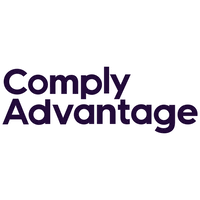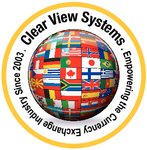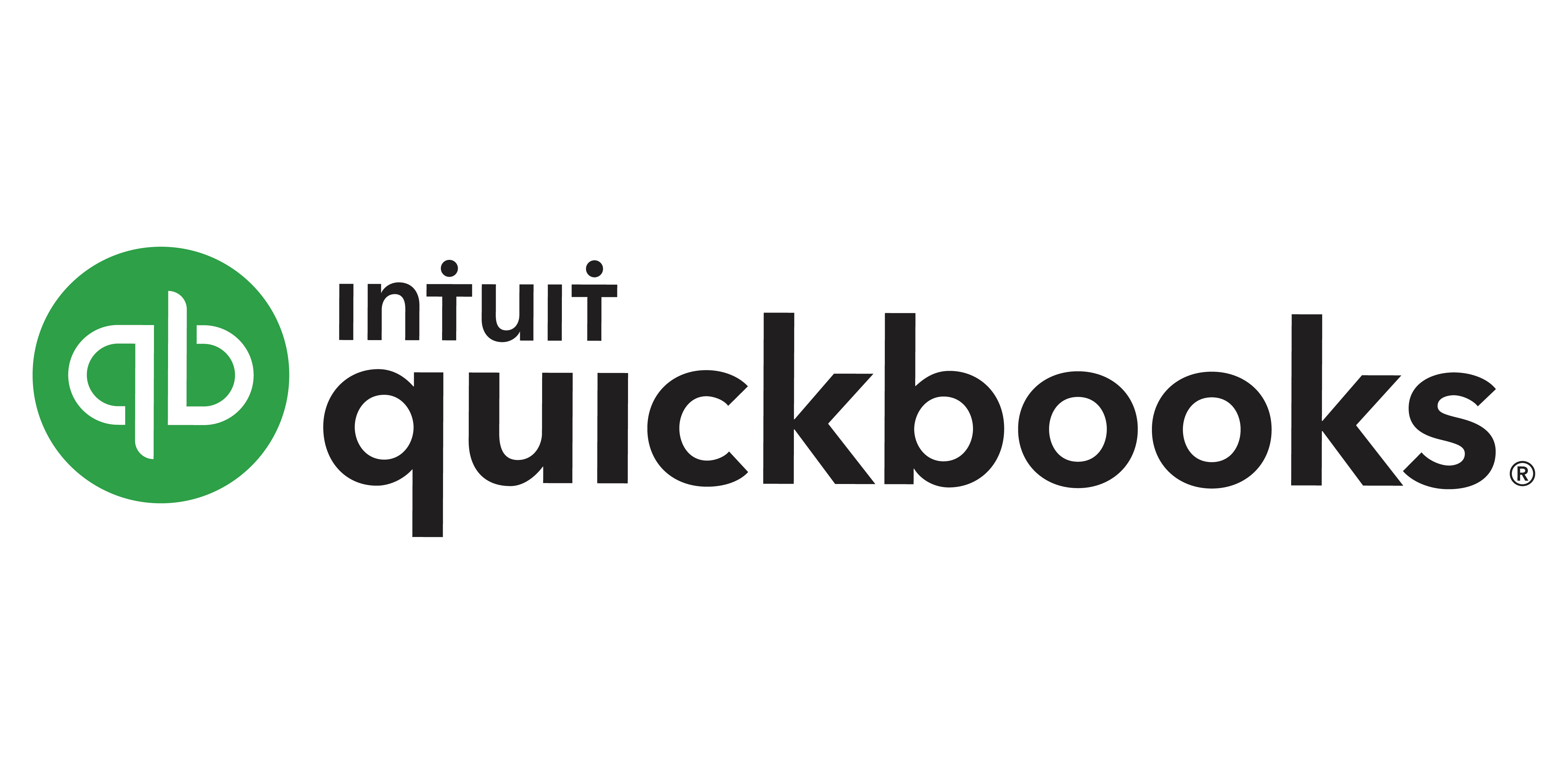What Is AML Software?
Anti-money laundering (AML) software is a strong tool that assists businesses and organizations in combating financial crimes such as money laundering, terrorism funding, fraud, and other unlawful activities. This specialized software uses artificial intelligence and powerful algorithms to monitor and analyze massive amounts of data from multiple sources in order to detect and prevent financial crimes.
AML software provides a complete solution for firms to meet regulatory obligations while reducing the risk of potential infractions or punishment. It automates and streamlines anti-money laundering compliance processes, saving firms time and resources. The basic purpose of AML software is to monitor and analyze client transactions and behaviors in real time, reporting any suspicious activity for further investigation.
It also includes capabilities like watchlist screening, transaction monitoring, and customer due diligence, all of which are required for AML compliance. Furthermore, AML software provides configurable risk assessments and compliance procedures, enabling firms to adapt to changing requirements and remain compliant without interrupting operations.
It also creates reports and notifications for any infractions, allowing organizations to take quick action and reduce risks. Some AML software also connects with other compliance technologies, such as compliance management systems, to offer a more holistic solution to firms. Additionally, cloud-based AML software enables remote access and communication, making it easier for firms with numerous locations and staff.
When contemplating acquiring AML software, it is critical to select a system that is matched to your sector and regulatory requirements. Look for real-time monitoring, configurable risk assessments, and integration possibilities to guarantee optimal efficacy. To summarize, AML software is an important tool for businesses and organizations to prevent financial crime and meet regulatory obligations.
It improves compliance procedures, lowers risks, and protects against reputational harm and financial losses. Given the ever-changing world of financial crime, investing in dependable and effective AML software is a prudent move for any company.
What Are the Recent Trends in AML Software?
Anti-Money Laundering (AML) software has grown in importance in recent years as organizations strive to efficiently manage and comply with legislation governing financial crimes such as money laundering and terrorism funding. As technology advances, AML software evolves to address new dangers and changing rules.
Buyers should be aware of the following current trends in AML software:
1. AI and Machine Learning (ML): One of the most significant trends in AML software is the use of AI and machine learning to better financial crime detection and prevention. These tools can scan massive volumes of data to detect trends and abnormalities that might signal illicit conduct. This can assist financial institutions and other organizations in better identifying possible hazards while also reducing false positives, so saving time and money.
2. Real-time Monitoring: Another development in AML software is the move to real-time monitoring. Traditionally, AML compliance was accomplished using batch processing, which means that data was evaluated in batches after transactions had happened. However, with the growth of real-time payments and transactions, AML software can now monitor and analyze data as it occurs, enabling for faster detection of suspect conduct.
3. Enhanced Due Diligence (EDD): As authorities tighten AML regulations, consumer due diligence becomes increasingly important. To satisfy these criteria, AML software now provides increased due diligence capabilities, such as complex risk score algorithms, negative news searches, and other tools that assist firms in properly vetting their clients and partners.
4. Integrated Compliance Solutions: Another trend in AML software is the transition to integrated compliance solutions. This implies that AML software is being built to integrate smoothly with other compliance tools like Know Your Customer (KYC), Customer Relationship Management (CRM), and Transaction Monitoring. This enables a more comprehensive approach to compliance and can help firms simplify their operations.
5. Digital Identity Verification: With the advent of online and mobile banking, the demand for dependable and secure digital identity verification has also grown. AML software now includes digital identity verification features to assist verify the legitimacy of consumer identities and detect possible fraud.
Benefits of Using AML Software
AML (Anti-Money Laundering) software is an effective tool for helping firms comply with rules and avoid financial crime. By automating and optimizing AML operations, this software helps businesses manage risks and preserve their image. In this buyer's guide, we'll look at the advantages of utilizing AML software and help you make an informed decision on which solution is best for your business.
1. Compliance with Government Regulations: Regulatory authorities set strict requirements on firms to have effective AML processes in place. AML software assists organizations in remaining compliant by automating the processes of client identification and verification, transaction monitoring, and audit trail creation. This not only saves time and work, but also reduces the likelihood of sanctions and reputational harm.
2. Reduced Financial Crime: Financial criminals frequently attempt to launder money by exploiting system flaws. AML software employs powerful algorithms to identify suspicious activities and flag it for further investigation. This removes the need for manual monitoring, which is time-consuming and error-prone, and aids in the prevention of financial crime by allowing for early identification and response.
3. Increased Efficiency and Cost Savings: Manual AML processes are both time-consuming and costly. AML software automates monotonous activities, allowing businesses to reallocate resources to more important areas. It also lowers the possibility of human mistake while improving the accuracy of AML processes. This not only saves time and effort, but also leads in considerable cost savings for organizations.
4. Improved Customer Due Diligence: One of the key components of AML compliance is the implementation of extensive customer due diligence (CDD) procedures. AML software verifies consumer information using several data sources, including personal information, identity papers, and digital footprints. This enables organizations to gain a better understanding of their consumers, analyze potential hazards, and make educated decisions.
5. Customizable and Scalable Solutions: Every organization has distinct AML needs. AML software solutions have adjustable capabilities that may be adjusted to a company's unique requirements. This features customized risk-based rules, dashboard displays, and reporting capabilities. Furthermore, AML software solutions are scalable, allowing businesses to develop and meet changing AML requirements.
Important Factors to Consider While Purchasing AML Software?
As the global economy grows more linked, the potential of illegal financial activities such as money laundering has become a big worry for companies of all kinds. As a result, Anti-Money Laundering (AML) software has developed as an essential tool for organizations to detect and prevent financial crimes. When contemplating acquiring AML software, there are various variables to consider to ensure that you make the best investment for your company.
Here are some important considerations to consider.
1. Regulation Compliance: AML software must adhere to the norms and guidelines established by governing authorities such as the Financial Action Task Force (FATF) and the Office of Foreign Assets Control. To prevent penalties or legal implications, be sure the software you purchase is up to date and compliant with current standards.
2. Customization and Scalability: Each organization has its own unique risk profile and requirements. As a result, it is critical to select AML software that can be tailored to your individual needs while also scaling as your organization expands. This will guarantee that your software is both relevant and effective in the long run. 3. new Technology: To boost its capabilities, AML software should incorporate new technologies like as artificial intelligence and machine learning. These tools can assist spot suspicious transactions and patterns more precisely and effectively.
4. User-Friendly Interface: Your personnel should be able to simply access and utilize AML software. A complex interface can stymie uptake and efficacy, so make sure the program is simple for your staff to use.
5. Integration with Existing Systems: To minimize disruptions in your operations, AML software should interact easily with your existing systems. This will also allow for improved data analysis and risk assessment across all platforms.
6. Real-Time Monitoring and notifications: Look for AML software that monitors transactions in real-time and sends notifications when suspicious behavior is discovered. This will allow you to take immediate action to avoid suspected money laundering.
7. Robust Reporting and Analytics: AML software should have thorough and configurable reporting and analytics to assist you in tracking and analyzing your AML operations. This will allow you to detect any shortcomings and make more educated judgments in the future.
8. Training and Support: Make sure that the software vendor provides enough training and support to assist you and your team properly grasp and use the product's capabilities. This will guarantee the program is used effectively and efficiently.
What Are the Key Features to Look for in AML Software?
When looking for the finest AML software for your firm, you should evaluate a number of critical aspects that will enable efficient and effective compliance with anti-money laundering standards.
Here are the key things to look for in AML software:
1. Risk Assessment and Scoring Capabilities: The capacity to appropriately analyze and grade risks connected with clients and transactions is critical to AML compliance. Look for software that allows you to customize risk assessment models and automate risk scoring based on parameters including customer profiles, transaction quantities, and geographic areas.
2. Transaction Monitoring: Proactive transaction monitoring is critical for detecting unusual behavior and possible money laundering. AML software should provide extensive monitoring capabilities that can detect irregularities and flag potentially high-risk transactions for further examination.
3. Customer due diligence (CDD): CDD is the process of validating and gathering client information in order to assess their potential for money laundering. Look for software that streamlines and automates CDD procedures with capabilities like data enrichment, ID verification, and continuous monitoring of client information.
4. Watchlist Screening AML: software should be able to scan clients and transactions against worldwide sanctions and watchlists, such as OFAC and FATF, to verify regulatory compliance and detect high-risk organizations.
5. Compliance Reporting: Efficient and accurate reporting is critical to AML compliance. Look for software that has extensive reporting features, such as configurable reports and dashboards, as well as the option to produce reports for regulatory bodies.
6. Integration of Data Sources: To properly monitor and detect suspicious behavior, AML software must be able to interact with several data sources, including financial institutions, government databases, and consumer databases. This enables a more thorough understanding of client activities and possible hazards.
7. Machine learning and artificial intelligence: Machine learning and artificial intelligence may significantly improve the efficacy and efficiency of anti-money laundering software. Look for features that use these technologies to do sophisticated risk assessment, anomaly detection, and predictive analytics.
8. Updated Regulatory Compliance: AML software should be updated on a regular basis to ensure compliance with evolving requirements and keep ahead of emerging dangers. Look for software that provides automatic upgrades and complies with AML rules including the Bank Secrecy Act, FINRA, and the Patriot Act.
9. User-Friendly Interface: A user-friendly interface is essential for AML software since it facilitates navigation and usage by compliance teams. Look for software that provides easy and customized dashboards, as well as a wide range of user permissions, to ensure that each person has the appropriate amount of access. Consider these critical aspects in AML software to enable efficient and successful compliance with anti-money laundering legislation. Remember to properly explore and assess several software solutions to discover the best one for your individual requirements.
Why Do Businesses Need AML Software?
Businesses use AML (Anti-Money Laundering) software to preserve their brand and meet regulatory obligations. AML software is intended to detect and prevent financial crimes including money laundering, terrorism funding, and fraud. It automates the process of detecting suspicious activity, tracking transactions, and reporting them to the proper authorities.
This is critical since noncompliance with AML requirements can result in significant penalties and reputational harm. One of the primary reasons that organizations want AML software is to prevent financial and legal implications. The growth of financial crimes, along with an increased emphasis on worldwide cooperation in addressing them, has resulted in tougher legislation and penalties for noncompliance.
AML software assists organizations in remaining compliant by continually monitoring transactions and detecting suspicious behavior, lowering the danger of being involved in illegal financial activities and suffering fines. Furthermore, AML software may help a company's AML compliance program run more efficiently and effectively. Manual AML processes can be time-consuming, error-prone, and may overlook important information.
AML software automates these processes, resulting in considerable time and resource savings for AML compliance. It also delivers real-time notifications and thorough data, allowing organizations to respond to any threats quickly and precisely. Furthermore, AML software assists firms in establishing a robust defense against financial crimes. It employs modern technologies such as artificial intelligence and machine learning to analyze massive volumes of data and detect complicated patterns and anomalies that may suggest illicit activity.
This enables organizations to detect and prevent financial crimes on a proactive basis, therefore preserving assets and reputation. Investing in AML software demonstrates a company's commitment to ethical and responsible business operations. With an increased emphasis on corporate social responsibility, organizations with strong AML compliance procedures and systems will be perceived as more trustworthy and reputable by their clients, investors, and partners.
How Much Time Is Required to Implement AML Software?
The time required to deploy AML (Anti-Money Laundering) software is determined by various factors, including the organization's size and complexity, the level of customisation required, and the software solution chosen. However, it normally takes between six months and a year to completely integrate AML software. The implementation process often includes numerous phases, including as planning, configuration, testing, training, and deployment.
During the planning phase, the firm must examine its AML compliance requirements and goals, as well as identify possible risks and current systems that may require integration with the new software. The next phase is configuration, which involves customizing the AML software to meet the needs of the enterprise. This may include creating rules, alerts, and processes, as well as importing data from existing systems.
Depending on the complexity of the organization, this procedure might take many weeks or months. Once setup, the program must be thoroughly tested to verify that it performs correctly and efficiently. This testing phase might last several weeks to a few months, depending on the size of the business and the amount of data being processed. The effectiveness of AML software deployment is also significantly dependent on staff training.
Most AML software companies give training courses to help staff comprehend the new system's capabilities. These training sessions might last many days and may need to be repeated for different departments or groups within the business. Finally, once all of the preparation and testing is completed, the AML program is ready for deployment.
The deployment process includes installing the program and its components, configuring user accounts, and ensuring that all systems are properly linked. This process can take anything from a few weeks to several months, depending on the size and complexity of the business. Finally, the deployment of AML software might take between six months and a year.
However, investing time and money in adequate planning, design, testing, training, and implementation is critical for a successful AML compliance programme. Organizations may successfully prevent financial crimes and guarantee regulatory compliance by implementing the correct tools and following a well-executed plan.
What Is the Level of Customization Available in AML Software?
AML (Anti-Money Laundering) software is a critical tool for organizations in today's regulatory environment. With the increase of financial crimes and the growing need to comply, having dependable AML software is critical. However, with so many alternatives on the market, it can be difficult to decide which one is ideal for your individual requirements.
When it comes to AML software, firms need customization options to guarantee the solution matches their unique compliance needs.Different firms have distinct procedures, data, and risk profiles, so a one-size-fits-all solution may not be appropriate for everyone. The extent of customisation in AML software varies by vendor. However, most respectable vendors provide a variety of customization options, allowing organizations to modify the software to their exact requirements.
AML software often offers the following customization options:
1. Risk profiles: Effective AML software should enable firms to build and manage different risk profiles. This feature allows organizations to prioritize notifications according to their risk tolerance and regulatory needs.
2. Data inputs: AML software uses data to detect probable money laundering activity. Thus, the capacity to tailor data inputs is critical. Businesses should be able to add and delete data sources, map data fields to particular risk indicators, and change data quality levels as needed.
3. Rule creation: Rules are the foundation of AML software, determining whether specific behaviors or transactions are considered suspicious. Customizable AML software should enable firms to establish and alter rules according on their risk profiles and business operations.
4. Alert management: AML software sends notifications when a transaction or conduct satisfies a predefined rule. Customizable AML software should allow organizations to specify alert thresholds, alerts, and escalation procedures.
5. Reporting: Another important aspect of AML software is its reporting capabilities. Customizable AML software should enable organizations to generate and alter reports according on their own compliance needs and internal procedures. Overall, the amount of customisation offered by AML software is critical for firms to ensure the solution matches their unique demands and compliance standards. As a result, while looking for AML software, be sure to ask about the customization possibilities available to ensure it meets your company's requirements.
Which Industries can benefit the most from AML Software?
AML (Anti-Money Laundering) software is a critical tool for enterprises across sectors in combating financial crime and meeting regulatory obligations. It is a sophisticated tool that uses data analytics, artificial intelligence, and machine learning to discover, evaluate, and report on questionable financial transactions.
Let's take a deeper look at which sectors will gain the most from AML software.
1. Banking & Finance: Because of the substantial danger of money laundering and terrorist funding, the banking and financial industries are leading the way in the use of AML software. AML software allows financial institutions to monitor customer transactions in real time, identify suspicious activity, and create regulatory compliance reports. It also speeds up the onboarding process by authenticating customer IDs and performing due diligence inspections.
2. Insurance: With the surge in fraudulent insurance claims, AML software may be extremely beneficial to the insurance business. Insurance businesses employ AML software to detect bogus or questionable claims and prevent fraudulent activity. AML software may also be used to monitor the activity of insurance agents, ensuring that they are not participating in any illegal activities.
3. Real Estate: Real estate deals involve substantial quantities of money, making them a prime target for money launderers. AML software may help real estate firms do due diligence on buyers and sellers, identify suspicious transactions, and meet regulatory obligations. It also aids in detecting any concealed ownership or relationships to high-risk persons or companies.
4. Games and Online: Gambling Online gambling and gaming have emerged as popular means for money laundering. AML software enables gaming and gambling enterprises to monitor consumer activity, identify suspect behaviours, and report them to authorities. It also helps to verify customer identities and ensure compliance with AML and KYC standards.
5. Healthcare: The healthcare business is prone to fraud and financial crimes because of the sensitive nature of patient data and the high cost of medical services. Healthcare businesses may use AML software to prevent fraudulent invoicing and insurance claims, monitor financial activities, and do due diligence on patients and providers.
6. E-Commerce: With the growing rise of eCommerce, AML software is becoming increasingly important for online merchants to prevent fraudulent transactions and keep their platforms from being exploited for money laundering. AML software assists in detecting and flagging any suspicious actions, verifying customer identities, and ensuring compliance with anti-fraud legislation.
Conclusion
Finally, AML software is a crucial tool for enterprises and organizations seeking to combat money laundering and financial crimes in an efficient and effective manner. It provides a diverse set of tools and capabilities to expedite and automate AML compliance processes, saving time and money while guaranteeing regulatory compliance.
When contemplating acquiring AML software, it is critical to conduct extensive research and evaluation of numerous key elements, including the program's features and capabilities, compatibility with current systems, vendor reputation and customer service, and price alternatives. Businesses may get the finest AML software for their needs and budget by carefully examining these elements.
Furthermore, sufficient training and continuous assistance should be provided to guarantee that AML software is used effectively. This involves staying up to current on technological improvements and advances in order to improve AML compliance efforts over time. Overall, AML software is an excellent investment for enterprises and organizations who want to remain ahead of legal standards and protect themselves against financial crimes.
Businesses may increase their AML compliance efforts while also protecting their reputation and financial stability by picking the correct software and consistently using it effectively.






















